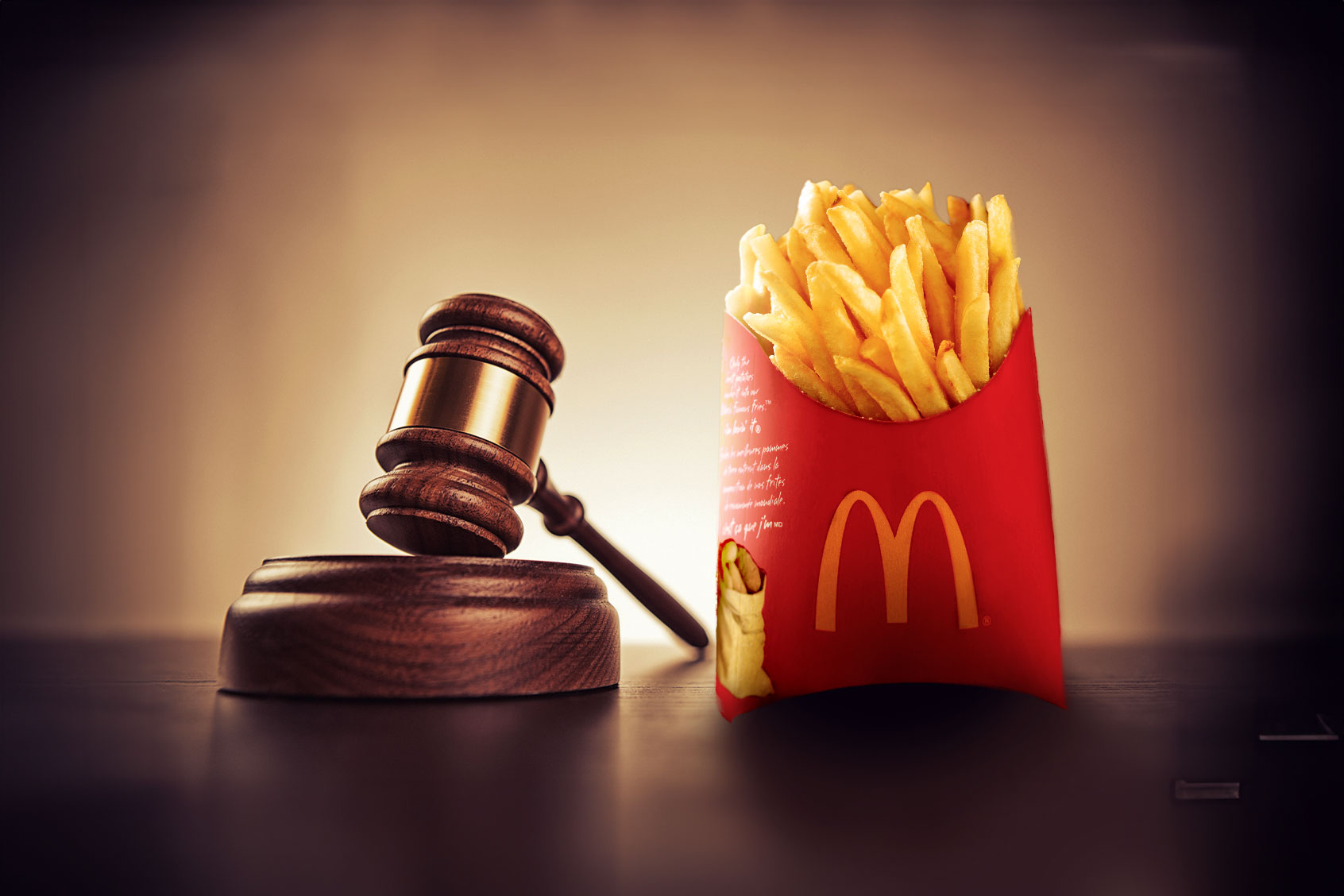The journey of a McDonald’s burger patty doesn’t begin in the familiar din of the drive-thru, but on the sprawling expanses of sun-scorched pastures at calf-cow operations, the smaller farms and ranches that dot the American heartland. Typically, once calves reach six or eight months, they are weaned and sent to larger, industrial pastures to roam in vast herds, fattening on grass, though this pastoral interlude is a short one.
The next stop is a feedlot, where cattle are fed an energy-rich diet of grains and corn, designed to make them grow as efficiently as possible. When they reach about 1,200 pounds, they are “finished” — or ready for slaughter. It’s at the sprawling, chilled processing plants of industry giants like Tyson Foods, National Beef, Cargill and JBS that cattle are transformed into beef. There, workers methodically dismantle carcasses into primal cuts: chuck, rib, loin, flank, shank.
While some of those cuts will end up on supermarket shelves, nearly a billion pounds of beef each year are funneled into the McDonald’s supply chain, ground into the factory-precise patties that form the basis of its most iconic offerings. For a global giant like McDonald’s, the path from pasture to patty involves an intricate web of supply chains — essential, yet unseen in the final bite. But now, McDonald’s is suing a crucial link in that chain: the so-called “Big Four” beef producers, accusing them of inflating the price of wholesale beef.
It’s a legal battle that is set to send ripples through the American meat industry.
The fast-food company alleges Tyson Foods, Cargill, JBS and National Beef conspired to artificially inflate the price of wholesale beef, driving up the costs for restaurants and consumers alike. At the heart of the case is the claim that these producers have engaged in price-fixing, using their control over the market to manipulate supply, all while smaller ranchers and end buyers bear the brunt of the financial strain.
Smaller organizations have tried to take on the Big Four over allegations of price-gouging in the past, but those efforts have either failed or been settled out of court. Yet for McDonald’s — which, again, purchases nearly a billion pounds of beef annually — the implications of the lawsuit are already significant. The company is not only seeking financial restitution, but it is also raising questions about fairness and competition during a time when “greedflation” is a hot topic, both culturally and politically.
According to a federal complaint filed in New York and reviewed by The Associated Press, McDonald’s alleges the meat-packers have been engaged in a conspiracy to charge “illegally inflated” prices for wholesale beef since at least 2015. The suit argues that the companies’ actions violate the Sherman Act, a cornerstone of U.S. antitrust law passed in 1890 that prohibits business practices that restrict competition, such as price-fixing and monopolistic behavior.
While McDonald’s did not immediately respond to a request for further comment on Wednesday, the suit notes data from recent years shows that Tyson Foods, Cargill, JBS and National Beef combined control more than 80% of the U.S. beef market. “Conspiracies are easier to organize and sustain when only a few firms control a large share of the market,” the suit read.
We need your help to stay independent
The Big Four of the beef industry have faced similar allegations of price-fixing in the past and have had several high-profile settlements, like when JBS agreed to a $52.5 million settlement in 2022 after grocers and wholesalers accused the meat-packer of anticompetitive behavior, though as the AP reported, “such settlements did not include admissions of wrongdoing
U.S. Sen. Chuck Grassley, an Iowa Republican who has advocated for more transparency surrounding how much beef processors pay ranchers, said the settlement was just a “spit in the ocean compared to JBS’ record profit throughout the pandemic.”
“If there were any doubt about the shenanigans big packers play to line their pockets at the expense of consumers and independent producers, look no further than JBS’ $52.5 million settlement in price-fixing litigation,” Grassley said, according to the Des Moines Register.
"Conspiracies are easier to organize and sustain when only a few firms control a large share of the market."
In its lawsuit, McDonald’s is seeking a trial by jury, a move that could thrust the ongoing debate over “greedflation” back into the spotlight. The term, which refers to companies raising prices beyond the rate of inflation, has gained traction as consumers grapple with the soaring cost of groceries and everyday items. During the pandemic, the rising prices led to boycotts of companies accused of profiteering, and even Vice President Kamala Harris has promised to take on greedflation if elected — a stance that has already stirred controversy within the supermarket industry.
McDonald’s, too, has faced accusations of greedflation. Earlier this year, an uproar followed reports of a Big Mac meal selling for $18 at a Connecticut location — nearly double its usual price. The fast-food giant attributed the discrepancy to inflation and regional price variations, but the incident quickly became a flashpoint in the broader conversation about corporate pricing practices.
As the lawsuit unfolds, it has the potential to highlight the concentrated power of the Big Four and the hidden forces that shape the price of one of America’s most ubiquitous meals. So, at a time when public scrutiny is mounting over corporate profits and food prices, McDonald’s legal challenge could have far-reaching implications — not only for the meat industry, but for the fast food chain’s own reputation.
Read more
about this topic


